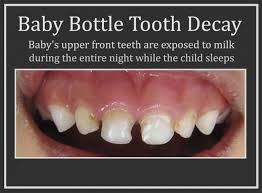January 26th, 2023
You might think that if you brush your teeth thoroughly and have no food trapped between your teeth you don’t need to floss. Actually, flossing is imperative because it helps you get rid of plaque from between the teeth, where a toothbrush can’t reach. Taking care of your teeth and gums is important in avoiding tooth decay and periodontal disease, which may lead to bone loss. One way you can lose teeth is by not brushing and flossing regularly.
December 13th, 2022
Take care of your teeth during the Holidays!
Holidays are knocking at the door! Myriads of appealing baking sweets and chocolatery products are decorating the stores shelfs. It’s a feast for the eyes and the palate and almost compulsory to have desert at our Thanksgiving and Christmas dinners. Probably our teeth are not going to be very happy to soak in sugar for the entire holiday season and I would like to urge you not to ignore their cry for help.
Definitely you can have desert and also minimizing the impact of sugar on your teeth. Protect your teeth by taking these basic measures:
- After eating your sweets make sure you brush and floss to minimize the period of time sugar stays in contact with your teeth. If possible, minimize the number of sweets intake to once or twice a day. Do not snack on sweets all day long.
- If possible, opt for fruits instead of sweets with added sugar. Exotic fruits like mango, papaya, jackfruit, dragon fruit, passion fruit, guava, are amazingly healthy, tasty and colorful. It will make a platter or a salad that will delight your eyes and make your buds explode with pleasure. Not to speak about the vitamins, minerals, antioxidants, enzymes that are very beneficial to your overall health
- Keep a disciplined home care schedule with brushing and flossing after meals. Your teeth shall Thank You!
Yours in good dental health,
Dr. Horia Ionescu
[caption id="attachment_76" align="alignnone" width="1000"] Christmas gingerbread man and hot drink[/caption]
Christmas gingerbread man and hot drink[/caption]
October 12th, 2022
Did you know that milk sugar (the naturally occurring one that come from lactose) might create tooth decay in babies?
It is true, we’ve seen it many times. If a baby falls asleep with a bottle of milk his/her teeth will stay soaked in milk for an extended period of time creating tooth decay. We know it’s frustrating and the baby will not fall asleep without the bottle. But you should try hard, for your baby own good, to make him/her finish the bottle before falling asleep then wipe his gums with a soft, damp washcloth. If the teeth are erupted, brush his/her teeth with a soft, children size toothbrush and a small amount of non-fluoride toothpaste. Take your child to the dentist as soon as their first birthday. It’s really sad to have to put your baby to sleep to be able to fix his/her cavities as such a young age. But as sad as it is it is not the only issue. Premature loss of baby teeth may upset the correct position of permanent teeth and therefore increase need for braces treatment to correct. prevention is the key.

 Christmas gingerbread man and hot drink[/caption]
Christmas gingerbread man and hot drink[/caption]
